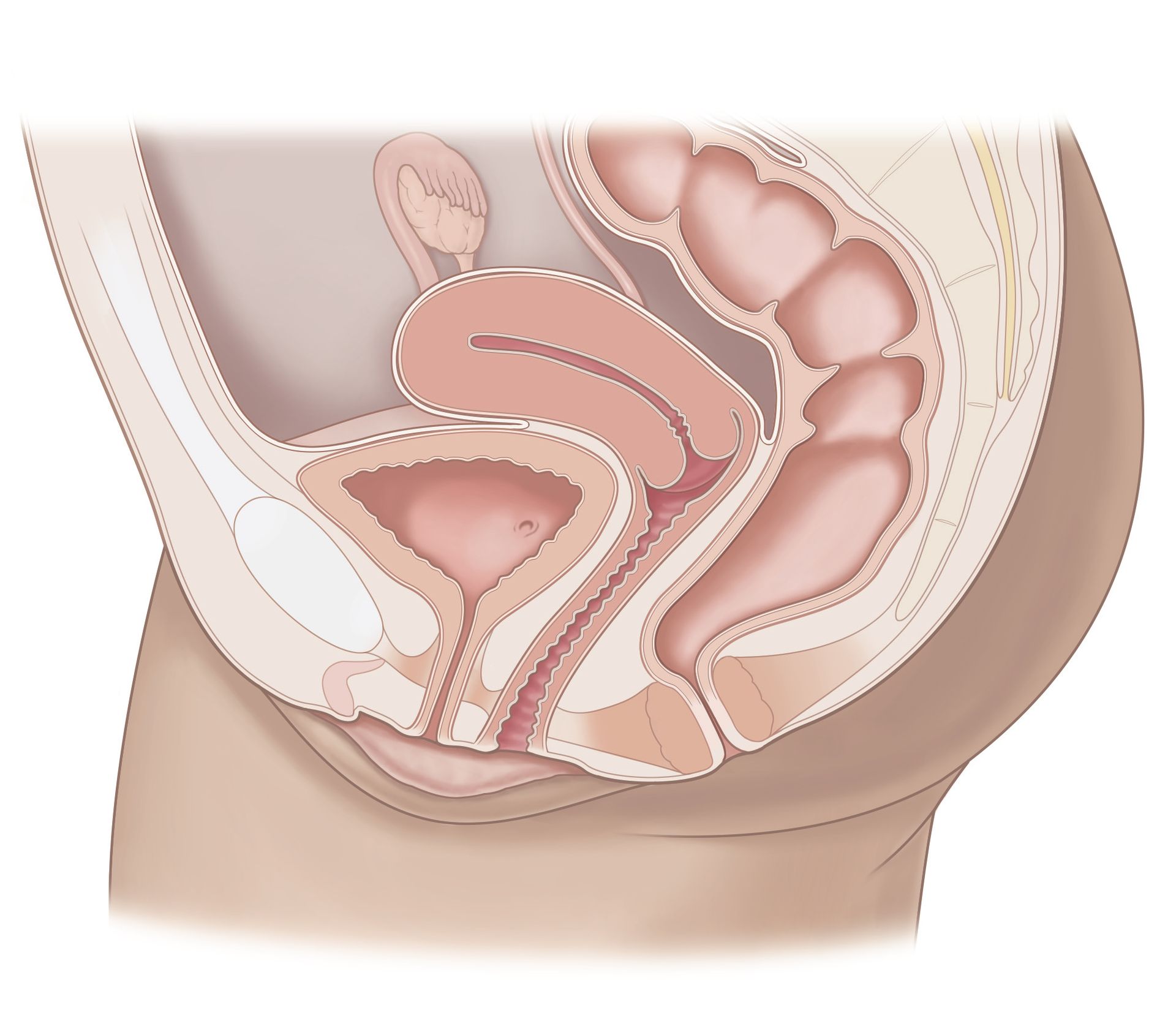
Ever wondered about the rollercoaster ride of perimenopause? Perimenopause is the period of time when your ovaries produce less estrogen and your body transitions to menopause. This transitional phase before menopause typically sneaks up in your 40s, but for some, it crashes the party as early as the mid-30s. During this time, estrogen levels fluctuate up and down, often erratically, which causes all kinds of wild symptoms. Perimenopause is a no-size-fits-any phenomenon that can show up in many different ways. This means it’ll look very different for different women, and even for the same woman, many different ways over time. Some women endure severe symptoms for years, while others transition to menopause much more easily. It can last for several years, bringing with it a delightful mix of surprises. But don’t worry—we’ve got your survival guide right here.
But first, how do you even know that this is Perimenopause?
There is not a perfect blood test to determine if a woman is in perimenopause due to the widely fluctuating hormone levels. So how do you know the difference between perimenopause and other medical conditions that could be popping up during this time? It can be tricky, so we’re going to review some of the most common symptoms of perimenopause, and how we evaluate them.
Perimenopause Symptoms: The Greatest Hits
- Irregular Periods
Your once-predictable cycle has decided to go rogue. Will it be 20 days? 45 days? Who knows! It’s like a mystery game, except the prize is always more tampons in your purse.
How do we evaluate?
Irregular bleeding can be a sign of an illness or infection, uterine fibroids, pregnancy complication, endometrial polyps, cervical cancer, or uterine cancer. We may do vaginal swabs, a pelvic exam, or an ultrasound to evaluate.
2. Hot Flashes and Night Sweats
Suddenly sweating like you're in a sauna while sitting in an air-conditioned room? Welcome to the world of spontaneous combustion, where you never know when the heat wave will strike.
How do we evaluate?
Hot flashes can be caused by an overactive thyroid (hyperthyroidism) so we may do some hormone bloodwork to investigate.
3. Sleep? What Sleep?
You either can’t fall asleep, wake up drenched, or stare at the ceiling wondering if you forgot to turn off the oven. Fun times!
How do we evaluate?
Sleep is crucial for hormone regulation. If you are struggling with sleep for more than a couple of weeks, we will evaluate your sleep hygiene, and consider an evaluation for a sleep disorder like sleep apnea.
4. Mood Swings and Emotional Whirlwinds
Laughing one minute, crying at a cat video the next—your emotions now have the range of a Hollywood drama.
How do we evaluate?
We’ll perform a thorough mental-health evaluation to understand the underlying mood changes.
5. Vaginal Dryness and Other Joys
Let’s just say things can get a little less… smooth. But hey, there are plenty of remedies for that!
How do we evaluate?
Vaginal infections can also result in similar symptoms, so we may collect a vaginal swab.
6. Where Did My Libido Go?
It’s not lost forever, but it may be taking an extended vacation. Don’t worry, it’ll send a postcard eventually.
How do we evaluate?
Sexual dysfunction can be caused by many different factors, both physical and mental/emotional. We may test some of your hormones and ask you a few questions to understand further.
7. Metabolism Slowdown (a.k.a. The Revenge of the Snack Drawer)
That cookie you used to eat without consequences? Yeah, it’s plotting against you now.
How do we evaluate?
These symptoms can also be caused by an underactive thyroid (hypothyroidism) so we may do some hormone bloodwork to investigate.
8. Brain Fog and Memory Blips
Ever walked into a room and forgotten why? Welcome to "What Was I Doing Again?" – the perimenopause edition.
How do we evaluate?
We’ll take a look at a comprehensive metabolic panel and a blood count. We’ll evaluate to understand the underlying factors that impact your mental clarity.
9. Body Aches And Joint Pain
Many women in perimenopause suffer from widespread body aches, muscle aches, and pain in the joints.
How do we evaluate?
We’ll evaluate for other causes like arthritis, fibromyalgia, and depression.
How to Tame the Perimenopause Beast (The Functional Medicine Approach)
1. Balance Your Diet for Hormonal Harmony
Your body is going through a hormonal rollercoaster, so give it the fuel it needs! Load up on healthy fats (avocados, nuts, and olive oil), fiber-rich foods (think flaxseeds and leafy greens), and high-quality protein. Reduce sugar and processed foods to stabilize blood sugar and keep energy levels steady.
2. Support Your Gut Health
Your gut microbiome plays a big role in hormone metabolism. Fermented foods like kimchi, yogurt, and sauerkraut, along with a quality probiotic, can help keep things in balance. A happy gut means a happier transition!
3. Strengthen those Muscles
Weight training 2-3 times a week can help stave off changes in body composition, maintain your metabolic health, and keep you strong.
4. Adaptogenic Herbs to the Rescue
Nature has your back! Adaptogens like ashwagandha, maca root, and rhodiola can help support adrenal function and balance stress hormones, making mood swings and fatigue more manageable.
5. Prioritize Sleep and Circadian Rhythms
Create a sleep sanctuary by minimizing blue light before bed, setting a consistent bedtime, and incorporating magnesium-rich foods or supplements to relax your nervous system. Melatonin can also be helpful if your sleep cycle is off-track.
6. Detox Your Liver
Your liver plays a key role in processing excess hormones. Give it a boost with cruciferous vegetables (broccoli, Brussels sprouts, cauliflower), lemon water, and green tea. Say goodbye to hormone overload!
7. Manage Stress with Mind-Body Techniques
Chronic stress wreaks havoc on your hormones. Try breathwork, meditation, acupuncture, or even a daily walk in nature to bring cortisol levels down and keep your body in a state of balance.
8. Hydrate and Mineralize
Staying hydrated helps flush toxins and supports hormone regulation. Try adding electrolytes or mineral drops to your water for an extra boost of hydration and balance.
9. Menopausal Hormone Therapy
If symptoms are intense, consider whether menopausal hormone therapy is right for you. Meet with one of our Menopause Society certified practitioners to test hormone levels, gut health, and nutrient deficiencies. Tailored interventions, from bioidentical hormone therapy to nutritional adjustments, can make a world of difference.
Final Thoughts
Perimenopause might feel like a wild ride, but with a few holistic lifestyle tweaks, you can navigate it like a pro. Embrace the journey, laugh at the chaos, and remember—your body is working with you, not against you. Now, go grab a fan, a smoothie, and a good adaptogen. You’ve got this!



Don’t just get seen, get taken care of.
Questions? Call or book an Intro Call with a member of our team.
© 2024 All Rights Reserved
Almond
